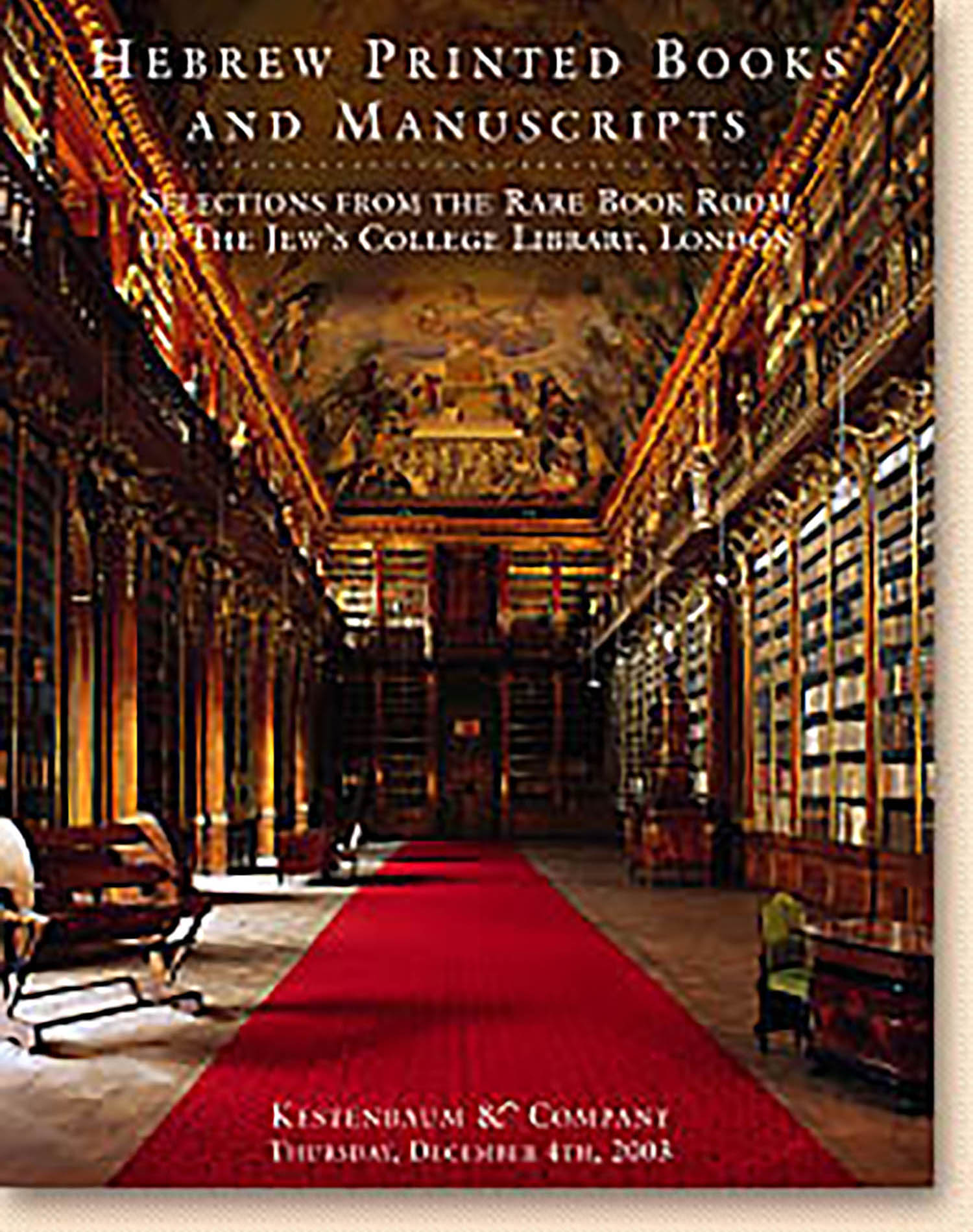Sepher ha-Kuzari [philosophy]. Translated from Arabic to Hebrew by Judah ibn Tibbon (With commentary “Kol Yehudah” by Judah Moscato)

AUCTION 21 |
Thursday, December 04th,
2003 at 1:00
Kestenbaum & Company Holds Inaugural Auction of Hebrew Printed Books & Manuscripts at Their New Galleries
Lot 94
HALEVI, JUDAH
Sepher ha-Kuzari [philosophy]. Translated from Arabic to Hebrew by Judah ibn Tibbon (With commentary “Kol Yehudah” by Judah Moscato)
Venice: Giovanni di Gara 1594
Est: $400 - $600
PRICE REALIZED $750
The Kuzari is written in the form of a Socratic dialogue. In this work, Halevi develops a philosophy of history in an attempt to show the insufficiency of theological conclusions arrived at by rationalistic means. His underlying principle is that God cannot be found or conceived by reason, but rather by an intuition peculiar to Semitic peoples. It is this divine intuition (“al-amr al-ilahi” in the Arabic original or “ha-inyan ha-elo-hi” in Tibbonide Hebrew) which may bring one to the highest spiritual level: prophecy. The work has a polemical and apologetic dimension as well, discussing the perceived inadequacies of Christian and Islamic theology, and the superiority of Judaism. See M. Waxman, vol. I, pp. 333-339.
In the past century, the study of the Kuzari was encouraged by R. Abraham Isaac Kook, Chief Rabbi of Israel; R. Ezekiel Sarna, dean of the Hebron Yeshivah; and R. Shraga Feivel Mendelowitz of Yeshivah Torah Voda’ath, Brooklyn. They valued its experiential approach over and against the rationalism of Maimonides. For a recently published detailed analysis contrasting Halevi and Maimonides’ attitudes to the problems of Jewish philosophy, see David Hartman, Israelis and the Jewish Tradition (2000); also Diane Lobel, Between Mysticism and Philosophy (Albany, 2000). Kuzari has been referred to as the “philosophy of anti-philosophy.”
THE COPY OF ABRAHAM BARUCH PIPERNO. Piperno published a poem upon the cessation of the plague, Kol Rinah vi-Yeshu’ah (Livorno, 1815); a poem in honor of the nuptials of the King of Italy (Modena, 1842), and edited an anthology of poems by R. Moses Zacuto, R. Moses Hayim Luzzato, and others, entitled Kol Ugav (Livorno, 1846).
